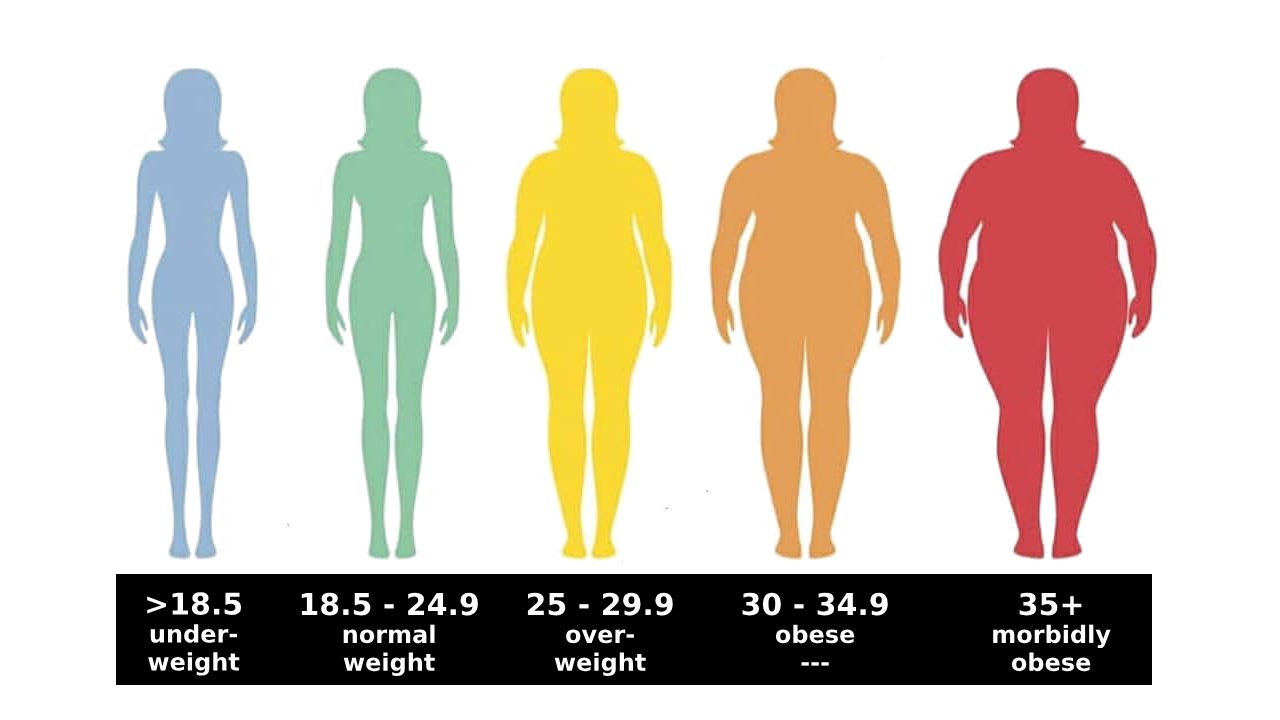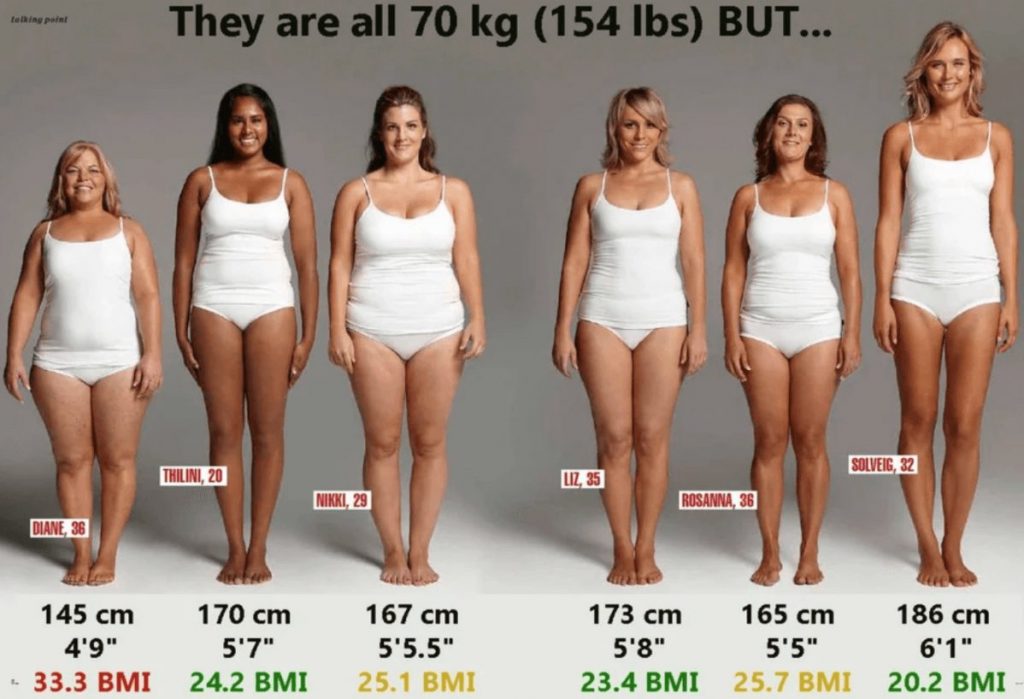BMI (Body Mass Index) is a measure used to assess someone’s weight relative to their height. An individual with a BMI of 29 is considered to be overweight, but not obese. A BMI of 29 is calculated by taking a person’s weight in kilograms and dividing it by the square of their height in meters. People with a BMI of 29 experience a greater risk of health issues such as Type 2 diabetes, heart disease, stroke, and certain types of cancer. To reduce their risk, they should focus on maintaining a healthy weight.
This includes eating a balanced diet with plenty of fruits, vegetables, and whole grains, and exercising regularly. Having a BMI of 29 does not mean that someone is unhealthy. However, it is important to be mindful of the risks associated with being overweight and to take measures to prevent further weight gain. Maintaining a healthy lifestyle of balanced nutrition and regular physical activity is essential to reducing the health risks associated with a higher BMI. If an individual’s BMI is 29 and they are trying to lose weight, it is important to talk to a healthcare professional about the best way to do this safely. Rapid weight loss can be dangerous and can lead to nutritional deficiencies. A healthcare professional can provide guidance on how to safely lose weight and keep it off. Overall, a BMI of 29 is a sign that a person should take steps to reduce their risk of chronic diseases. This can be done through making lifestyle changes such as eating a healthy diet, exercising regularly, and maintaining a healthy weight.
what is considered obese

A body mass index (BMI) of 29 or higher is generally considered to be obese. This means that if you have a BMI of 29 or above, you are considered clinically obese. Being obese can increase the risk of developing several health problems, such as type 2 diabetes, high blood pressure, heart disease, stroke, and some types of cancer. It can also lead to physical inactivity, low self-esteem, and depression. In order to prevent or reduce obesity, it is important to maintain a healthy diet and regular physical activity.
You should also aim to reach and maintain a healthy weight. Eating smaller portions, avoiding sugary and high-fat foods, and choosing whole grains instead of processed foods can help you maintain a healthy weight and reduce the risk of becoming obese. Further, regular physical activity can help you maintain a healthy weight and reduce the risk of becoming obese. Exercising for 30 minutes a day, at least five days a week, can help you stay in shape and reduce the risk of developing health problems related to obesity. Being overweight or obese can have serious health consequences, and it is important to take steps to reduce the risk. A healthy lifestyle, including a balanced diet and regular physical activity, can help maintain a healthy weight and reduce the risk of developing obesity.
How many pounds overweight is considered obese?
When it comes to a Body Mass Index (BMI) of 29, it can be difficult to determine if someone is considered obese or not. Although a BMI of 29 would not be listed as obese, it is still considered overweight. Generally, any person who is more than thirty pounds overweight would be considered obese. This means that if your BMI is 29 and you are thirty pounds or more over your ideal weight, you would be considered obese. A BMI of 29 with less than thirty pounds of excess weight over the ideal weight would be classified as overweight, but not obese.
It is important to remember that BMI is only a guideline. While it can give you an idea of your overall health, it is not a diagnostic tool. Your healthcare provider will be able to provide more accurate information and help you set realistic goals for weight loss. If your BMI is 29 and you are more than thirty pounds overweight, you should consider consulting your healthcare provider for further advice. They can help you determine an appropriate course of action to achieve your desired weight and help you maintain your health. It is also important to remember that BMI does not take into consideration factors such as muscle mass, body frame size, and activity level. Your overall health should be taken into consideration when determining if you are obese or not. With the help of your healthcare provider, you can develop an effective plan to reach your desired weight and maintain a healthy lifestyle.
What is body mass index indicates that a person is obese?
Body Mass Index (BMI) is an important indicator to measure a person’s health status. A score of 29 or higher indicates obesity. Obese people are at greater risk of developing chronic diseases such as heart disease, diabetes and some types of cancer. They are also more likely to suffer from musculoskeletal issues, respiratory problems and poor mental health. The World Health Organisation (WHO) defines a BMI of 30 and over as obese.
This means that someone with a BMI of 29 is close to the threshold and should take steps to reduce their body mass. Lifestyle changes are the most effective way to bring down BMI. This includes making time for physical activity, changing eating habits, reducing stress and managing sleep cycles. Additionally, people with a BMI of 29 should make sure to get regular health check-ups and medical advice to monitor the progress of their health. It is important to note that BMI is not always a reliable measure of health. It does not take into account factors such as body composition and muscularity which can also influence a person’s health. It is also important to remember that BMI should not be used as a means to judge someone’s body shape or size. Finally, it is essential for people with a BMI of 29 to take steps to reduce their body mass and maintain a healthy weight. This can help them to reduce their risk of developing chronic diseases and improve their overall wellbeing.
What weight do you consider to be morbidly obese?
Morbidly obese is a term used for those who have a Body Mass Index (BMI) of 29 or higher. This means that a person who is morbidly obese is considered to be more than 100 pounds overweight. People who are morbidly obese are at an increased risk for numerous serious health issues, such as heart and lung diseases, stroke, diabetes, and certain types of cancer. Morbidly obese individuals may also experience a decrease in quality of life due to physical limitations and the fact that they can be socially isolated due to their size. In addition to diet and exercise, there are a variety of treatments available for those who are morbidly obese, such as bariatric surgery, medications, and lifestyle changes. It is important to note that morbid obesity is a serious condition that requires medical intervention. If you have a BMI of 29 or higher and are experiencing problems with your health or quality of life, it is important to seek help from a qualified healthcare provider.
What diet would you recommend to someone who is obese?
If someone is obese with a BMI of 29, I would recommend a balanced and healthy diet to help them reduce their weight and improve their overall health. A diet that focuses on eating whole, unrefined grains, fruits and vegetables, lean proteins, and healthy fats is best. It’s important to stay away from processed, highly refined and sugary foods, and to limit the intake of unhealthy foods such as fried foods, soft drinks, and fast food. In addition to eating healthy, being physically active is also important for weight loss and health. A regular exercise routine that includes both cardiovascular activities and strength training can help burn more calories and build muscle mass.
To help with portion control, it’s also recommended that people with a BMI of 29 eat smaller meals throughout the day, instead of two or three larger meals. Eating more often can also help reduce cravings for unhealthy snacks. Finally, to help them stay motivated and on track, I would recommend finding a partner or a support group that can help provide encouragement and guidance. With a combination of a healthy diet, exercise and support, it’s possible to achieve your weight-loss goals.







